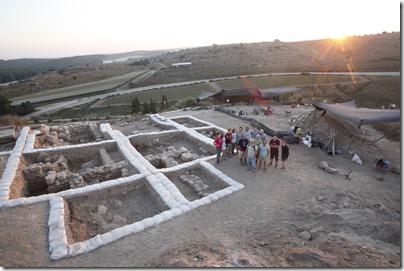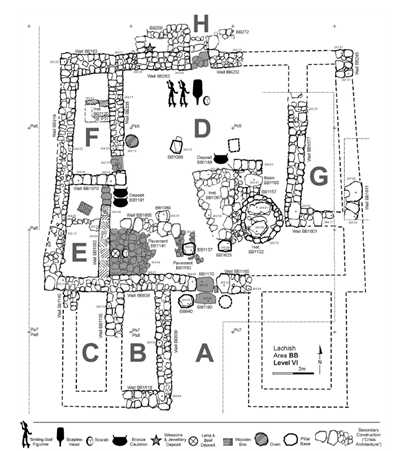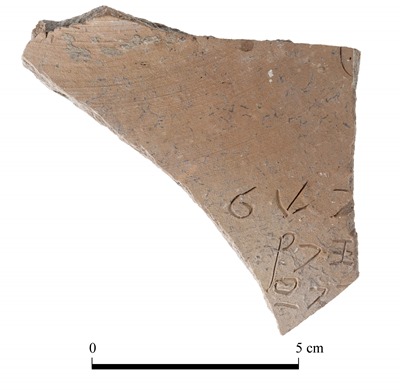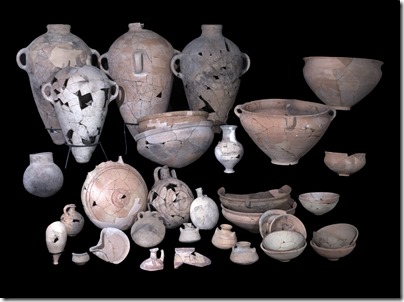Archaeologists from Hebrew University excavating at Lachish have uncovered a temple from the Canaanite period. The full study is published in Levant, and the university has issued a press release, portions of which are excerpted here.
In a study published last month in Levant, [Yosef] Garfinkel and his co-authors revealed, for the first time ever, extensive ruins of a Canaanite temple dating to the 12th century BCE that they uncovered in National Park Tel Lachish, a large Bronze Age-era settlement near the present-day Israeli city of Kiryat Gat…
The layout of the temple is similar to other Canaanite temples in northern Israel, among them Nablus, Megiddo and Hazor. The front of the compound is marked by two columns and two towers leading to a large hall. The inner sanctum has four supporting columns and several unhewn “standing stones” that may have served as representations of temple gods. The Lachish temple is more square in shape and has several side rooms, typical of later temples including Solomon’s Temple.
In addition to these archaeological ruins, the team unearthed a trove of artifacts including, bronze cauldrons, Hathor-inspired jewellery, daggers and axe-heads adorned with bird images, scarabs, and a gold-plated bottle inscribed with the name Ramses II, one of Egypt’s most powerful pharaohs. Near the temple’s holy of holies, the team found two bronze figurines. Unlike the winged cherubs in Solomon’s Temple, the Lachish figurines were armed “smiting gods”.
Of particular interest was a pottery sherd engraved with ancient Canaanite script. There, the letter “samek” appears, marked by an elongated vertical line crossed by three perpendicular shorter lines. This makes it the oldest known example of the letter and a unique specimen for the study of ancient alphabets.
The story is currently being reported by Jewish Press and Arutz-7, with more surely to follow.
HT: Joseph Lauer
Temple at Tel Lachish, courtesy of the Fourth Expedition to Lachish
Plan of the North-East Temple, by J. Rosenberg
Letter samek, 2nd row on right, inscribed on storage jar; photo by T. Rogovski
Pottery uncovered in temple, photo by C. Amit, IAA



